- Basic Science
-
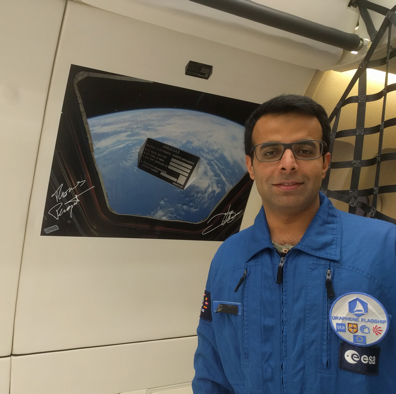
Zero gravity experiments for cooling in Space 1 DR. ABDUL SAMAD, Yarjan University of Cambridge Dr. Yarjan Abdul Samad is a research associate at the Cambridge Graphene Centre, University of Cambridge. His research areas include electromechanical and electro and photo- thermal properties of carbon and two-dimensional materials, as well as flexible and stretchable composites for space, health, environment and energy applications. He is among the team of experimentalists who tested properties of graphene for the first time in Zero Gravity (Zero G) environments. 
Dynamic control of optical properties with gated-graphene metamaterials DR. KIM, Teun-teun IBS, Sungkyunkwan University Dr. Teun-Teun Kim is currently a Young Scientist Fellow at Center for Integrated Nanostructure Physics, Institute for Basic Science (IBS), Sungkyunkwan University. He received his Ph.D. degrees in Department of Physics from Korea Advanced Institute of Science and Technology (KAIST) in 2010. He did his post-doctoral work at KAIST (2010-2013) and continues as a Marie Curie Research Fellow (2013-2017) at University of Birmingham. His current research interests are focused on graphene and 2D materials based Metamaterials & Metasurfaces, PT-symmetric (or breaking) Metamaterials, and Topological Metamaterials. 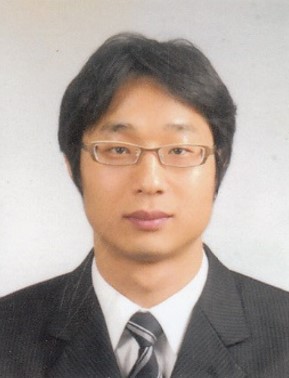
Optical metrology solutions for high-tech industrial applications DR. GHIM, Young-sik Korea Research Institute of Standards and Science Young-Sik Ghim received his MS and PhD in mechanical engineering from the Korea Advanced Institute of Science and Technology (KAIST). From 2009 to 2011, he worked at the Samsung Electro-Mechanics Company. He is currently working as a principal research Scientist in Advanced Instrumentation Institute at Korea Research Institute of Standards and Science (KRISS). His research interest includes freeform surface metrology, multilayer thin-film metrology, and optical based micro-machining technology. 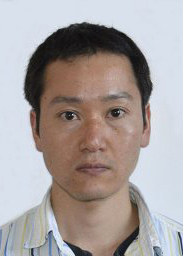
State-dependent information processing in the brain DR. SAKATA, Shuzo University of Strathclyde Dr Shuzo Sakata is a senior lecturer of Strathclyde Institute of Pharmacy and Biomedical Sciences at University of Strathclyde in Glasgow, UK. After receiving a PhD in 2002 at Kyoto University in Japan, he worked at Rutgers University in the US. Since 2010, he has been working at University of Strathclyde in the UK. Currently his research is supported by BBSRC, Leverhulme Trust, Alzheimer's Research UK, and Action on Hearing Loss. - Built Environment
-

Urban planning meets the requirement of urban human-biometeorology: Urban planning measures for a local reduction of severe human heat stress PROF. MAYER, Helmut Albert-Ludwigs University of Freiburg, Germany Current position: retired Professor, Chair of Environmental Meteorology, Albert-Ludwigs-University of Freiburg, Germany; Educational Background: Study of Meteorology, Ludwig-Maximilians-University of Munich, Germany (1966-1971); Research experience since completing studies: Head of Meteorological Institute, Albert-Ludwigs-University of Freiburg, Germany (October 1992 - September 2015); Habilitation in Forest Meteorology and Climatology, Ludwig-Maximilians-University of Munich, Germany (July 1985); Research fellow, Chair for Bioclimatology and Applied Meteorology, Ludwig-Maximilians-University of Munich, Germany (1974-1992); Dr. rer. nat. in Meteorology, Faculty for Physics, University of Karlsruhe, Germany (February 1974); Research fellow, Meteorological Institute, University of Karlsruhe, Germany (1971-1974); Long-term research activities abroad: August 1997 - March 1998, Dept. Earth and Planetary Sciences, University of New Mexico, Albuquerque, NM, USA; University positions: Dean of the Geoscience Faculty, Albert-Ludwigs-University of Freiburg, Germany (October 1997 - September 1999); Memberships: American Meteorological Society, German Meteorological Society, International Association for Urban Climate, International Society of Biometeorology, Royal Meteorological Society (UK); Chairman of the German Meteorological Society: 2011-2013; Field editor for urban climatology in scientific journals: Climate Research (September 2003 - December 2013), International Journal of Biometeorology (May 2007 - December 2014); Research fields: Urban climatology, urban meteorology, urban human-biometeorology, urban air pollution, forest meteorology, regional climatology 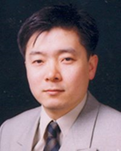
Smart building with zero energy & health care DR. DR.-ING. LEE, Keonho KICT He is working at Korea Institute of Civil Engineering and Building Technology(KICT) since 2003. He has studied and researched in Technical University Berlin in Germany. His major is on building physics how to reduce energy consumption in building. So He focused on double facade window, how to reduce SHGC and keep transmittance of window and glass. Now he developed the worldwide most thin double facade glass with air cavity of just 20mm. 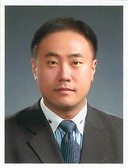
Present and tomorrow of green building certification system(G-SEED) in Korea DR. JANG, Daehee KICT Daehee Jang received a Ph.D. (2012) in Architectural Planning from Kon-Kuk University, Korea. He is involved in several research projects related to Ecological Urban and building. Recently, he has been researching about the revision and expansion of G-SEED. He works at the Green building Research Center in the Department of Living and Built environment Research of KICT (Korea Institute of Civil engineering and building Technology) as a Researcher Fellow since 2002. 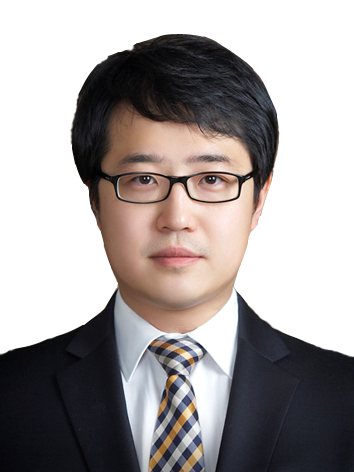
Current status and plan of Smart Cities in Korea DR. JUNG, Seunghyun KICT Seunghyun Jung received a Ph.D. (2009) in Urban Planning from Hanyang University, Korea. He is involved in several research projects related to urban environmental analysis using G.I.S. applications. Recently, he has been researching about smart City project. He works at the Smart Cities Research Centre of KICT (Korea Institute of Civil engineering and building Technology) as a senior researcher. 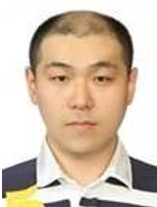
Approach of smart city in Denmark based on renewable energy PROF. KIM, Taeseong Technical University of Denmark He received a PhD degree from Seoul National University at 2009. Since 2009 he is working at Technical University of Denmark and he is currently an associate professor. His main research areas are wind turbine dynamics, aeroelasticity, design, and control. Opportunities and barriers of ICT application for smart energy city: lessons from UK-Korea collaboration projects DR. KIM, Jaemin University of Strathclyde Dr. Jaemin Kim worked as a researcher in Korea and Japan in the field of energy systems performance, with the emphasis on building physics and indoor air quality before coming to the UK in 1997. He has been involved in research projects and consulting works with the UK and Korean industry partners developing decision supporting tools with information on energy demand, supply potentials and environmental impacts (all by sector, time and fuel type). He is mainly interested in establishing low Carbon entities (i.e. demand, supply and users) network at the building level and the city level. 
Sound demonstration (with visual) MR. ATACK, Oliver ARUP Oliver Atack has been working at Arup since he gained his Post Graduate Diploma in Acoustics and Noise Control, Institute of Acoustics in 2009 
Sound demonstration (with visual) MR. BUSTOS, Cesar ARUP Cesar Bustos has been an acoustics engineer at Arup following his graduation at The university of Salford receiving Master of Science in Environmental Acoustics in 2014. - Energy & Environment
-
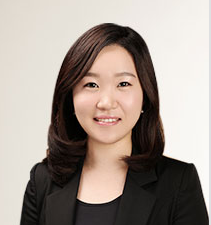
Options for implementation of environmental dispatch in Korean power market MRS. LEE, Soyoung Lawwise law office - Attorney at law - a member of the Working Group for Korea’s 3rd National Energy Basic Plan - a member of the Electricity Market Surveillance Committee in Korea Electricity Commission 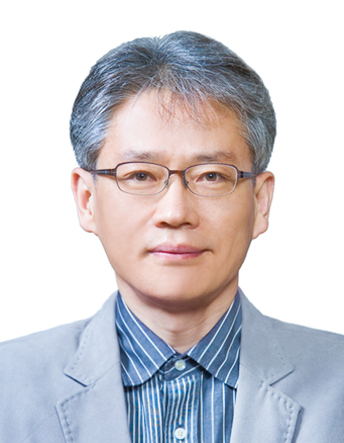
Future aspect of environmental researches for the fourth industrial revolution DR. KIM, Won Korea Institute of Civil Engineering and Building Technology Dr Won Kim has an academic background on civil engineering and got his Ph.D on river flow modelling of discontinuous flow in Korea. Working for KICT (Korea Institute of Civil Engineering and Building Technology) since 1991, he is now Director of Department of Land, Water and Environment Research. His main concern is about river restoration, river engineering, and climate change impact on river system. 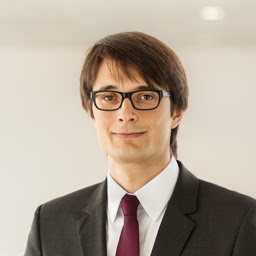
Digital society and resource efficiency MR. REISINGER, Martin Fraunhofer Institute for Manufacturing Engineering and Automation IPA Since 2015 Martin Reisinger is a researcher at the Fraunhofer Institute for Manufacturing Engineering and Automation IPA and the Institute for Energy Efficiency in Production (EEP) at the University of Stuttgart. He is a research group leader in the division "Efficiency Systems". The group applied industrial research focuses on topics that aim to reduce or flexibilise energy consumption in production through new digital energy management services or energy symbiosis in urban production systems. As Co-led of the secretariat of the German Federal Government’s stakeholder dialogue platform on Energy Efficiency, his work focuses on policy issues on energy and innovative financing mechanisms for energy efficiency projects. As an expert member in International Standardization Body he is working on system for evaluating energy efficiency and other factors of manufacturing systems that influence the environment (ISO TC184 SC5 WG10). He has an academic background in Environmental Engineering (Dipl.-Ing.). Before joining applied research he works as process and IT consultant in the German energy industry [EE7/NE3] Nuclear waste management policy in Korea PROF. CHOI, Sungyeol Korea Advanced Institute of Science and Technology (KAIST)
Professional Experience
Korea Advanced Institute of Science and Technology (KAIST), Daejeon, Korea
2017-Present | Assistant Professor, Department of Nuclear and Quantum Engineering
2017-Present | Head, Nuclear Fuel Cycle Laboratory
Ulsan National Institute of Science and Technology (UNIST), Ulsan, Korea
2015-2017 | Assistant Professor, Department of Nuclear Science and Engineering
2015-2017 | Adjunct Professor, School of Energy and Chemical Engineering
2015-2017 | Head, Nuclear Fuel Cycle Engineering Laboratory
2016-2017 | Director, Center for Advanced Nuclear Reactor
Korea Atomic Energy Research Institute, Daejeon, Korea
2013-2015 | Senior Researcher, Division of Nuclear Fuel Cycle Process Development
2012-2013 | Postdoctoral Researcher, Division of Strategic and International Studies
Harvard University, Cambridge, U.S.A
2010-2012 | Research Fellow, Belfer Center for Science and International Affairs
Seoul National University, Seoul, Korea
2012 | Postdoctoral Researcher, Nuclear Materials Laboratory
2008-2012 | Research Assistant, Nuclear Materials Laboratory
International Atomic Energy Agency, Vienna, Austria
2008 | Intern, Nuclear Power Engineering Section, Department of Nuclear Energy
Education
2008-2012 | Seoul National University, Seoul, Korea
Ph.D. in Nuclear Engineering, August 2012
2004-2008 | Seoul National University, Seoul, Korea
B.S in Nuclear Engineering, summa cum laude, February 2008[EE7/NE3] Collaborative research to underpin radioactive waste management in the United Kingdom and Republic of Korea PROF. HYATT, Neil University of Sheffield Neil Hyatt was appointed to academic staff in 2003 as Lecturer in Materials Chemistry. He obtained his BSc and PhD in Chemistry at The University of Birmingham and held research appointments in industry and academia, before joining the Department in 2001 as Senior Research Fellow in the BNFL Immobilisation Science Laboratory. Neil is a recognised authority on radioactive waste management and was appointed to a Royal Academy of Engineering research chair in 2011, supported by the Nuclear Decommissioning Authority.
Research interests
Radioactive waste management and disposal
Our focus is on developing strategy, materials, processes and policy to support the safe, timely and efficient clean up of the UK radioactive waste legacy. A key aspect of our research is the design, manufacture and performance assessment of glass and ceramic materials for the immobilisation of plutonium residues, legacy intermediate level wastes, and high level wastes from reprocessing operations.
We work closely with industrial organisations, including Sellafield Ltd., the Nuclear Decommissioning Authority and National Nuclear Laboratory to address real world challenges of radioactive waste management.
Our work has supported development of thermal treatment strategy by Sellafield Ltd. and Nuclear Decommissioning Authority and the acceptance of vitrified intermediate level wastes wastes in conceptual designs for the UK Geological Disposal Facility.
Advanced nuclear materials
Research is focused on the development of new materials and processes for application in future nuclear fission and fusion fuel cycles. We are currently developing novel processing methods for advanced cermet fuels with application in naval reactor concepts, ceramic clad materials for accident tolerant nuclear fuels, and the application of molten salts technology to reprocessing of nuclear fuels. We are also working on new waste management strategies for future fuel cycles, to reduce the ultimate geological disposal footprint.
Structure-property relations in mixed metal oxides
Research is focused on the study of structure-property relationships in perovskite related oxides showing a range of useful physical properties such as high temperature superconductivity, colossal magnetoresistance and anisotropic magnetic exchange. Recent work has investigated structure-property relationships in layered perovskite ferroelectrric oxides and oxide-fluorides.[EE7/NE3] Licensing and construction of geological disposal of spent nuclear fuel in Sweden and Finland - lessons learned for Korea PROF. STEPHANSSON, Ove Stephansson Rock Consulting; GFZ German Research Center for Geosciences
Research Interests:
Rock Fracture Mechanics
Stress Field of the Earth’s Crust and Stress Measurements
Deep Geological Disposal of Radioactive Waste
Career:
1972 Habilitation (Docent) Mineralogy and Petrology, University of Uppsala, Sweden
1972 Disseratation Structural Geology and Tectonics, University of Uppsala, Sweden
1967 Phil Licentiate Mineralogy and Petrology, University of Uppsala, Sweden
1965 Phil Candidate, Uppsala University
Education:
1963 - 1974, Research Assistant at Hans Ramberg Tectonic Laboratory, University of Uppsala
1974 - 1975, Research Fellow, Division of Mineral Physics, CSIRO, North Ryde, Australia
1974 - 1990, Professor in Rock Mechanics, Luleå University of Technology, Sweden
1978, Guest researcher, Carlton University, Ottawa, Canada
1982, 1985 Guest professor, Colorado School of Mines, Golden, Colorado, U.S.
1991 - 2002, Professor in Engineering Geology, Royal Institute of Technology (KTH), Stockholm
1992 - 2007, Head of the Secretariat of the international DECOVALEX project at KTH
1993-1997, Head of Department of Civil and Environmental Engineering, KTH, Stockholm
1998, Guest professor, Department of Engineering Geology, Technical University of Berlin
2000 - 2001, Visiting scientist, GeoForschungsZentrum, Section 3.2. Potsdam, German
2003 - 2010, Visiting professor GeoForschungsZentrum, Section 3.2 Potsdam, Germany
2011 on, Visiting professor GeoForschungsZentrum, Section 2.6 Seismic Hazard & Risk Dynamics, Potsdam, Germany
Professional Activities
2013 International Society for Rock Mechanics and Rock Engineering (ISRM) Fellow inducted in 2013 in Wroklaw, Poland
2011 Invitation ISRM Suggested Methods for Rock Stress Estimation and Fracture Toughness in Shear
2011 Member of the SONEX group at the Radiation and Nuclear Safety Authority in Finland for overlooking the underground works for the underground research facility ONKALO, Olkiluoto, Finland
2011 Rock inspections of CLAB and SFR underground facilities for the Swedish Radiation Safety Authority
2011 Review of selected chapters of the SKB R&D Program 2010 for The Swedish National Council for Nuclear Waste
Course Taught
2011 Stress Course, Aalto University, Espoo Finland (enrolled 58)
2011 MGPW10, Stress Field of the Earth’s Crust, Potsdam University (enrolled 4)
2010 European Stress Course, Ostrava, Czech Republic (enrolled 44)
2010 Rock Stress Models for Underground Site Characterization of Geological Repository of Nuclear Waste Meiringen, School of Underground Waste Storage and Disposal
Projects:
WSM – World Stress Map Project
Development of Fully Coupled T-H-M-F Processes for Geological Materials
Site Investigation and Evaluation for Underground Construction
Rock Fracture Mechanics Modelling of Underground Constructions
Fundamentals of Rock Mechanics and Rock Engineering
Deep Geological Disposal of Radioactive Waste and Spent Fuel - Inclusive Development & Appropriate Technology
-

Openfog & seven pillars - fog computing for a small village DR. SON, Muntak JIT After studying microiology (B.Sc) and biochemical engineering (M. Eng.) at Seoul National University, and analytical chemistry at Univ. of South Australia (Ph.D), he founded Joy Institute of Technology, an NGO to develop open-source science education kits for developing countries. 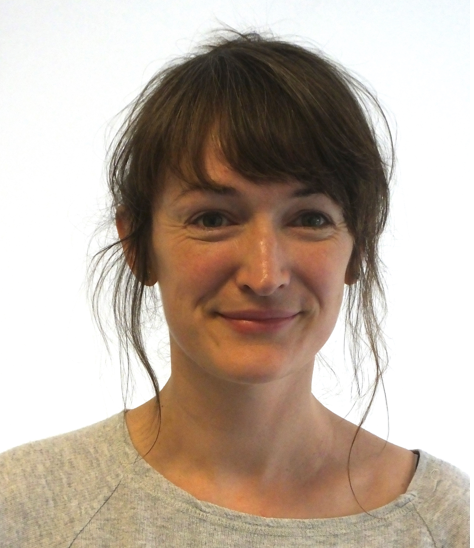
Failure testing: a limit state approach to engineered biological wastewater treatment DR. CONNELLY, Stephanie University of Glasgow Dr Stephanie Connelly (SC) is an EPSRC researcher at the University of Glasgow. Her work applies limit state methodology to the design of synthetic microbial communities for decentralised, sustainable biological water and wastewater treatment systems and encompasses engineering, microbial ecology and molecular microbiology. 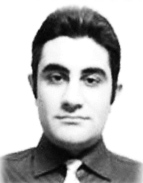
3D modelling of compressed soil bricks masonry structure MR. ESHTIAGHI, Amir Oregon Amir is a multidisciplinary civil engineer in structural design, building pathology, transport and mobility. He is a structure and material specialist at a global engineering firm in France. His developing interest include the development of natural material in building structure, Reinforcing Structural member in RC by natural fiber, Timber Composite structure and Compressed Soil brick Masonry structure. - Information Technology & Machine Learning
-
_20180321085421.jpg)
Real-time microwave imaging of moving anomaly from scattering matrix PROF. PARK, Won-kwang Kookmin University Won-Kwang Park received his B.S. degree in Mathematical Education from Kookmin University, Seoul, Korea in 2000, M.S. degree in Mathematics from Yonsei University, Seoul, Korea in 2004, and Ph. D. degree in Applied Mathematics from Ecole Polytechnique, Palaiseau, France in 2009. After graduation, he joined the institute for mathematics and scientific computing, University of Graz, Austria, as a post doctoral researcher in 2009. From 2010, he joined to the Kookmin University to work first as a full-time lecturer and as an assistant professor at the department of mathematics. Currently, he is an associate professor of Department of Information Security, Cryptology, and Mathematics in Kookmin University. His main research area includes Inverse scattering problem, inverse conductivity problem, microwave imaging, non-destructive evaluations, electromagnetics, scientific computing, and deep learning. In 2008, he received the best paper award from the Mechatronics & Mechanical Engineering symposium in EKC (EU-Korea Conference on Science and Technology) 2009 conference for his remarkable contributions to the level-set method in inverse scattering problem. He was awarded the best paper/poster award with his colleagues from 2013 KSIAM (Korean Society for Industrial and Applied Mathematics) spring conference, 2013 KSIAM annual meeting, 2015 KIEES (Korean Institute of Electromagnetic Engineering Science) summer conference, and 2016 KIEES summer conference. He has published various peer-reviewed articles about mathematical theories of various non-iterative algorithms for reconstructing crack-like defects in inverse problems, level-set method in inverse scattering problems, and microwave imaging techniques for detecting anomalies. 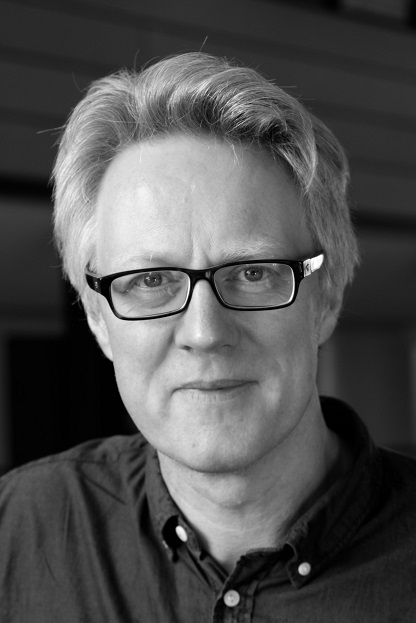
Network science from a mathematician's perspective PROF. HIGHAM, Desmond University of Strathclyde Des Higham is an applied mathematician with interests in computational biology, technological/sociological/security networks and mathematical finance. He is a Fellow of the Royal Society of Edinburgh, and a Fellow of the Society for Industrial and Applied Mathematics (SIAM). He has been awarded the SIAM Dahlquist Prize, an EPSRC Established Career Fellowship and a Royal Society Wolfson Research Merit Award. He is Editor-in-Chief of SIAM Review. 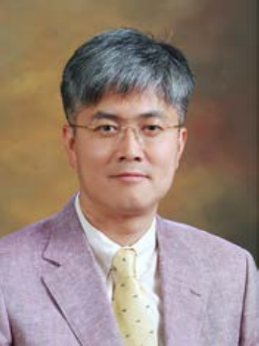
Introduction to Finance•Fishery•Manufacture industrial mathematics center on big data (FFMIMC) PROF. KIM, Hyun-min Pusan National University Education and Degrees Ph.D. (1997.09 - 2000.12) Department of Mathematics, University of Manchester, U.K. M.Sc. (1996.04 - 1997.09) Department of Mathematics, University of Manchester, U.K. B.Sc. (1985.03 - 1992.02) Department of Mathematics, Pusan National University, Korea Professional Experiences Direct of Finance Fishery Manufacture Industrial Mathematics Center on Big Data (2017. 06 – present) Dean of Admissions Office, Pusan National University (2016. 02 – 2017. 08) 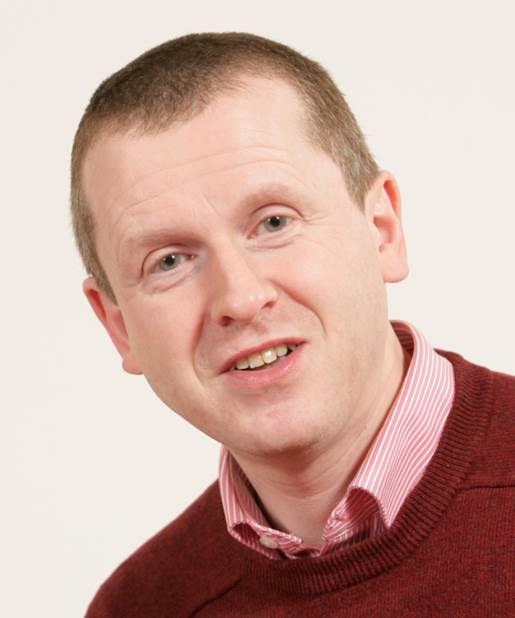
Sonopill: the future of capsule ultrasound PROF. COCHRAN, Sandy University of Glasgow Prof. Cochran’s research focuses on materials and systems to apply ultrasound principally in medicine and life sciences. His lab is the only one in the UK dedicated to medical ultrasound materials and systems, and one of only a handful like it in the world. Topics of particular interest are: (i) New piezoelectric materials and better utilisation of existing materials. (ii) Miniature devices for clinical applications of high resolution ultrasound imaging. (iii) Focused ultrasound surgery and ultrasound-targeted drug delivery. (iv) Ultrasound for transmission beamforming and manipulation of cells and particles. (v) Miniature and microscale ultrasound systems for biomedical applications. (vi) Ultrasound and other techniques for sensing in the body. Prof. Cochran has led more than 20 research projects with a value of more than £12m and been a co-investigator on around 20 more, worth a further £8m. He has been a director of two startup companies and is an inventor on 10 patents. He is a Fellow of the Institute of Physics and a member of several others learned societies. He has led the supervision of sixteen successful PhD / EngD students and jointly supervised five more. He is presently lead or joint supervisor for eight PhD / EngD students. 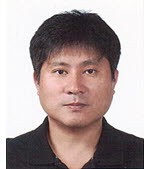
Deep learning and mathematical approach for defect inspection PROF. KANG, Myungjoo Seoul National University Myungjoo Kang received the B.S. degree in mathematics from Seoul National University, Seoul, Korea [1986] and the Ph.D. degree in mathematics from the University of California at Los Angeles, Los Angeles, in 1996. He was with the Department of Electrical and Computer Engineering, UCSD, and the Department of Mathematics, UCLA as a Researcher from 1996 to 2002. Since 2003 , he has been a faculty member of the Department of Mathematical Sciences, Seoul National University, Korea. His research interests are in mathematical image processing, as well as deep learning, numerical schemes and computational fluid dynamics. 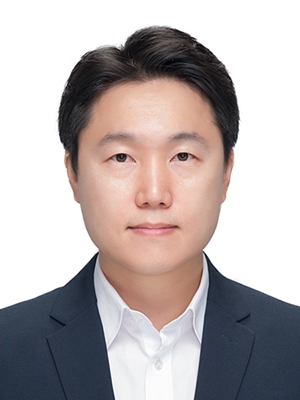
Single-photon detectors for next-generation biomedical applications DR. LEE, Myung-jae École Polytechnique Fédérale de Lausanne (EPFL) Myung-Jae Lee received his Ph.D. degree in electrical and electronic engineering from Yonsei University/South Korea, in 2013, and then joined TU Delft/The Netherlands as a postdoctoral researcher. Since 2017, he has worked in EPFL/Switzerland, where he is a scientist working on advanced single-photon detectors and applications as well as coordinating and managing research projects. He has published over 60 papers in international journals and conferences, and he has 2 patents and 10 awards. 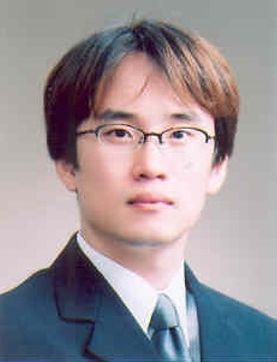
Introduction to KISTI-5 supercomputer and its HPC applications in computational science and engineering DR. KANG, Ji hoon Korea Institute of Science and Technology Information (KISTI) Dr. Ji-Hoon Kang is a principal researcher in Korea Institute of Science and Technology (KISTI). Since joining KISTI in 2009, he has worked in the field of scientific computing and HPC applications. As a head of the department of supercomputing application from 2016 to 2017, he led the benchmark tests for the procurement of KISTI-5 supercomputer. He received B.S. (2000), M.S.(2002), and Ph.D.(2007) from Korea Advanced Institute of Science and Technology (KAIST) in mechanical engineering. 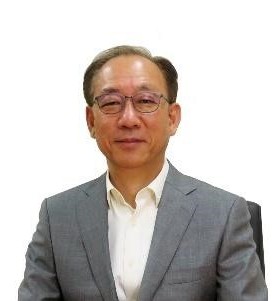
A strategy of software R&D for the fourth industrial revolution MR. KIM, Myung-joon SPRi (Software Policy $ Research Institute) KIM Myung-Joon received the B.S. degree from Seoul National University, the M.S. degree from KAIST(Korea Advanced Institute of Science and Technology) in Korea and the Ph.D. degree from University of Nancy I France in 1978, 1980 and 1986 respectively, all in computer science. He worked in LORIA (www.loria.fr) France as a Ph.D. student researcher during 1981 and 1986. He joined ETRI (www.etri.re.kr) in 1986 and has worked for the development of computer system software technologies. He served Senior Vice President of Computer & Software Research Laboratory (2000-2001), VP of R&D Strategy and Planning Division(2008), Senior VP of Software & Contents Laboratory(2009) and VP of Creative and Challenging Research Division(2010-2011), and Research Fellow(2012-2013). During July 2014 ~ September 2016, as research fellow he worked for ETRI startup TestMidas Co. Ltd. This company has been merged by Suresoft Technologies Inc. (www.suresofttech.com) at the beginning of 2016. He has leaded a number of Korean national projects, especially one for Linux technology development (code: BOOYO, 2004 ~ 2008). He played an important roles to promote FOSS (Free and Open Source Software) in Korea and also in the North-East Asia, as a vice chairman of Korea OSS Promotion Forum(2003~2009) and as a Korean vice chairman of the North-East Asia OSS Promotion Forum(2004~2010). He served the president of KIISE (Korea Institute of Information Scientists and Engineers, (www.kiise.or.kr) in 2012. He served two years (2013-2014) in Linux Foundation (www.linuxfoundation.org ) as a board member. His research achievement (2000 ~ 2015) could be summarized as follows: technology transfers 183 cases, licensing fee 265M Won (his contribution part), international journal papers 8(SCI 7, SCIE 1), national journal papers 25, patents registration 66 (international 35, national 31). 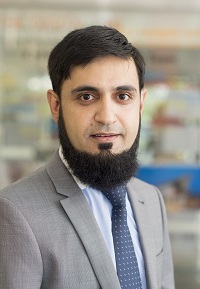
Digital solutions for manufacturing industry DR. AHMAD, Bilal University of Warwick Dr Bilal Ahmad is working as a Senior Research Fellow at WMG, University of Warwick. He received his MSc in Mechatronics and PhD in Automation Systems from Loughborough University, UK. He has over 13 years of experience in applied industrial research in the manufacturing sector. His specialisation areas include digital modelling, validation and deployment of cyber-physical systems, smart manufacturing, IT/OT integration, edge analytics and Internet of Things. He led development of a number of digital engineering tools and methods to support lifecycle engineering of automation systems in collaboration with automotive manufacturers, machine builders and control vendors. These include tools for offline validation of productivity and quality data of manufacturing systems, virtual commissioning / offline programming of manufacturing systems, and automatic code generation for PLCs and HMIs. Dr Ahmad has worked on a number of EPSRC, Innovate UK, FP7 and ARTEMIS funded research projects. He is actively contributing to IEEE technical and standardisation committees on Industrial Agents and Cyber Physical Systems, and is on the technical committees of a number of IEEE international conferences. He is also a reviewer for a large number of international journals and conferences. Prior to joining University of Warwick, he has worked as a Research Associate and University Teacher at Loughborough University, UK. 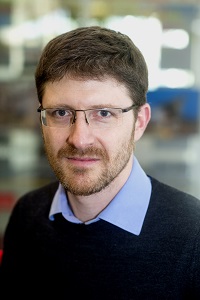
Digital evolution in manufacturing systems for Industry 4.0 DR. VERA, Daniel University of Warwick Daniel Vera received a M.Sc. degree in mechanical and Manufacturing engineering from E.N.I. Tarbes, France, in 2000 and a Ph.D. in manufacturing engineering from Loughborough University, U.K. in 2004. D. Vera has been developing methods and software solutions to support digital engineering for over ten years as a Research Associate at Loughborough University, U.K. and now as a Senior Research Fellow at the University of Warwick. His research interests are primarily focused on the design and development of data-driven collaborative engineering solutions to support key phases of manufacturing systems’ lifecycle, which formed the focus of his Ph.D. dissertation. Throughout his carrier he has developed expert-level knowledge regarding tools and solutions deployed in manufacturing, from computational models and simulation (DES, agent based modelling), the development of virtual systems’ engineering and simulation solutions (virtual process planning and validation), data analytics and machine learning (supervised/unsupervised learning, Deep learning and CNN), information visualisation (AR/VR interface development), cloud infrastructures deployment (Service oriented Architecture, Platforms as a Service). D. Vera has been involved both at technical and management level in numerous U.K. and European funded projects focusing on Digital Industry and Industry 4.0 oriented solutions. He is currently occupying a leading role in the Automation Systems Group at WMG, university of Warwick and focuses his research on the integration of IT-level and industrial control technologies into next generation Cyber Physical system engineering solutions. D. Vera is actively contributing to the Future Digital Need (FDN) and Digital Manufacturing strategy groups at WMG, is Leading Digital Acquisition and Analytics (DAA) CATAPULT forum+ projects and is actively involved in supporting national strategies for Digital Industry (D4I, IDR) through his involvement in HVMC funded Digital Manufacturing Large Scale Projects (LSP). - Life Sciences & Health
-
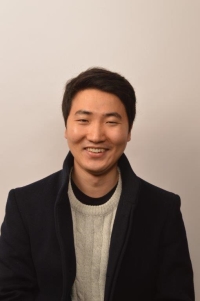
Proteogenomic analysis of PARPi-resistant BRCA1-deficient tumors DR. BHIN, Jinhyuk Netherlands Cancer Institue Jinhyuk Bhin completed his Ph.D program in POSTECH (South Korea) under the supervision of Prof. Dr. Daehee Hwang. During his Ph.D program, he applied systems biology approaches to identify key molecular bases in complex biological systems including embryonic stem cell and gastric cancer. He joined the groups of Lodewyk Wessels and Jos Jonkers in NKI at January 2017 as a postdoctoral fellow. His recent project is to discover the resistance factors in response to anticancer drugs in multiple types of breast cancers. 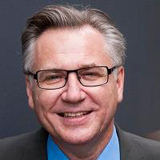
Precision oncology drug development PROF. BIANKIN, Andrew University of Glasgow Andrew Biankin is a surgeon-scientist whose research goals are to improve outcomes for individuals with pancreatic cancer through the development of early detection and novel therapeutic strategies based on molecular phenotyping and the delineation and implementation of biomarkers that facilitate clinical decision-making. He contributes to the International Cancer Genome Consortium through extensively characterising the genomic, transcriptomic and epigenomic aberrations in pancreatic cancer, and is extending this knowledge to a personalized model of cancer care, where molecular characteristics guide treatment decisions. 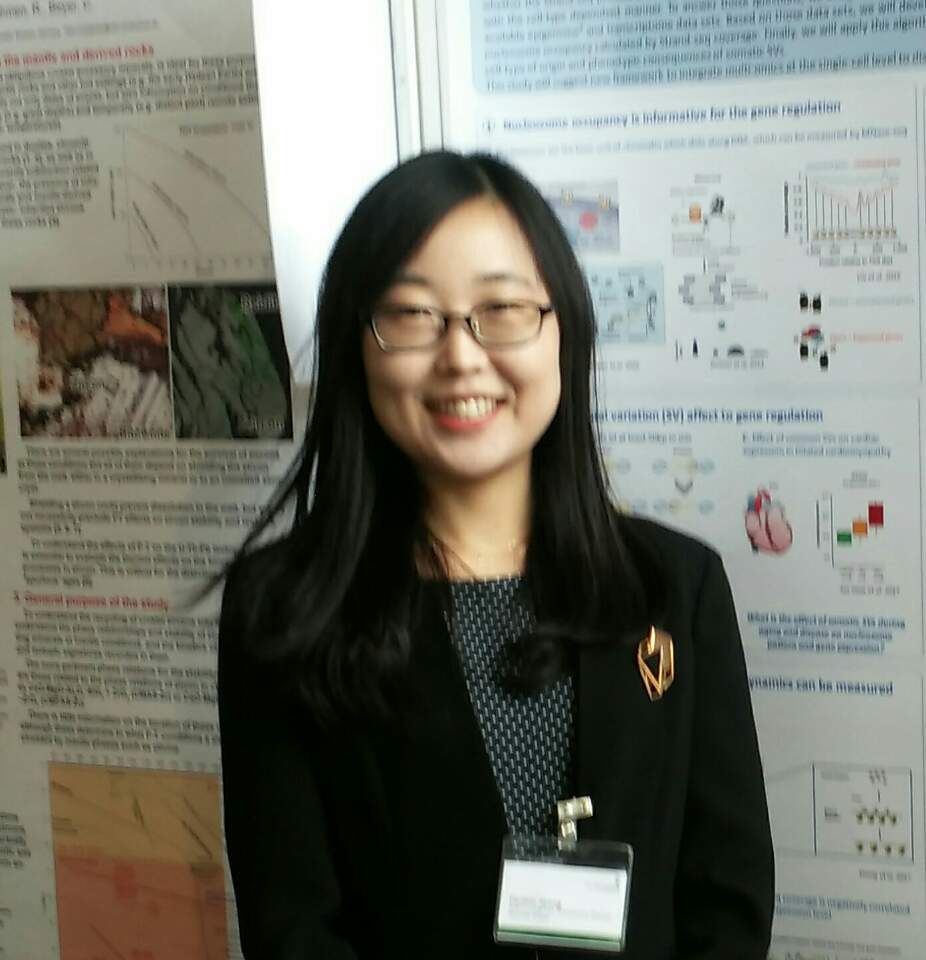
Deciphering the role of genetic structural variation on the gene regulation and disease DR. JEONG, Hyobin EMBL, Heidelberg Hyobin Jeong studied systems biology for her Ph.D. degree in POSTECH under the co-supervision of Prof. Dr. Daehee Hwang and Prof.Dr. Inhee Mook-Jung. The thesis title was "Development of framework for identification of disease related signaling pathways using omics data integration". Since 2018, she is a postdoctoral fellow in EMBL, Heidelberg under the supervision of Dr. Jan Korbel. Her recent research interest is to decipher cell-type dependent impact of genomic structural variation on gene regulation and disease. 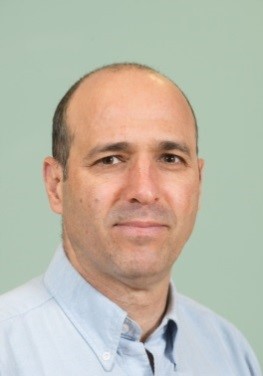
Targeting metabolic vulnerabilities of cancer PROF. GOTTLIEB, Eyal Technion - Israel Inst of Technology | Cancer Research UK Beatson Institute | Univ of Glasgow Prof. Gottlieb is Professor of Molecular Cell Biology at the University of Glasgow, a Research Group Leader at the Beatson Institute for Cancer Research, and the Laura & Isaac Perlmutter Chair of Cancer Research at the Technion-Israel Institute of Technology, Israel. Prof. Gottlieb's studies focus on cancer metabolism, combining analytical and organic chemistry with cancer genetics to explore new potential clinical approaches for cancer treatment. 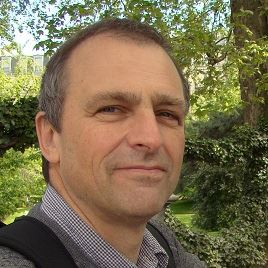
The Potential Role of Bee Products in Human Health: A Metabolomics Approach DR. WATSON, David University of Strathclyde, Strathclyde Institute of Pharmacy and Biomedical Sciences Dr Watson's areas of research involve high resolution mass spectrometry and chromatography applied to metabolomics, bionanalysis and natural products research. He served as local chair and organizer of the Metabolomics Society conference in Glasgow in 2013. His current metabolomics interests are as follows: parasite biology, drosophila biology, cancer cell biology, clinical screening for disease, steroids in models of pulmonary hypertension, and profiling of mammalian milks. 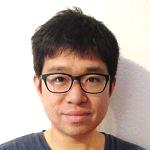
A study of in vivo rat brain tumour model using a flexible multinuclear MR-PET system DR. CHOI, Chang-hoon Forschungszentrum Juelich Dr. Chang-Hoon Choi obtained his PhD in MRI Physics at the University of Aberdeen, UK in 2010 and worked for MR Solutions, UK until 2014. He is an MRI expert and has been working in Forschungszentrum Jülich, Germany as a staff scientist since 2014. His research interests are MRI, MR-PET hardware, and applications using the systems. http://www.fz-juelich.de/inm/inm-4/EN/Forschung/MR-Physik/TeamHardware/_node.html 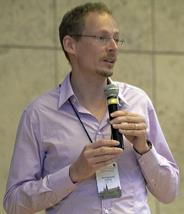
Towards cellulose nanocrystal films with controlled selective reflection PROF. LAGERWALL, Jan University of Luxembourg Jan Lagerwall (M.Sc. Physics 1997; Ph.D. Materials Science, 2002) is professor in physics at University of Luxembourg. His research focuses on soft matter physics, chemistry and materials science, connecting liquid crystals with many other fields, from fiber spinning and microfluidics to art, architecture and security. The motivation ranges from the scientific beauty to the diverse application opportunities arising through cross fertilization with other disciplines. As postdoctoral researcher Jan worked with N. Clark (Boulder), G. Heppke (Berlin) and F. Giesselmann (Stuttgart). He previously held group leader positions at Martin Luther University Halle-Wittenberg (Germany) and Seoul National University (Korea). https://wwwfr.uni.lu/universite/actualites/a_la_une/inaugural_lecture_by_prof_dr_jan_lagerwall 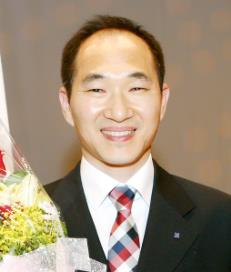
Direct contact imaging device for Live cell monitoring & IVD MR. LEE, Jongmuk SOL Inc. Jongmuk Lee is a CEO and founder of company, SOL Inc. The R&D focus of company is on developing direct contact imaging system capable of live cell monitoring, Point-of-Care(POC), and In-vitro Diagnostics(IVDs). He joined KAIST KEPSI, Korea in 1996 as a senior researcher, where he worked until he joined Siliconfiles, Korea in 2006 as a principal researcher. Mr. Lee received the Minister award from Ministry of Trade, Industry and Energy, Korea in 2015. He received IEC 1906 award from International Electrotechnical Commision(IEC) in 2017 and in same year, He received the Minister award from Ministry of SMEs and Startups, Korea. 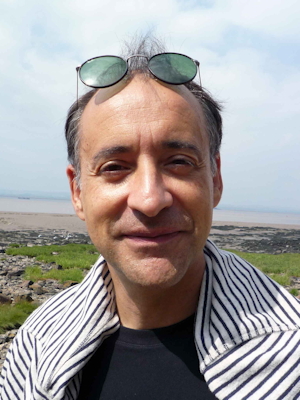
Sliding Tethered Ligands: lock and key interactions with a topological twist PROF. MARQUES, Carlos Centre National de la Recherche Scientifique http://www.ics-cnrs.unistra.fr/Mcube/spip.php?article217 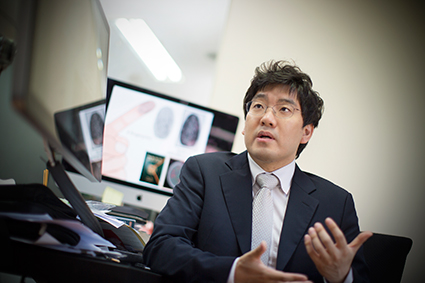
Microparticles as a new platform of cell based assays PROF. PARK, Wook Kyung Hee University Prof. Park Wook earned a 2011 Ph.D., Electrical Engineering (Biophotonics and nanoengineering), Seoul National University and he received Feb, 2012 President’s post-doctoral fellow at Seoul National University for 5 years. He became an Assistant professor at Kyung Hee University in 2012. His recent highlighted research topic is self-organization of maze-like structures via guided wrinkling (in Science advances (2017), where sophisticated three-dimensional (3D) structures found in nature as self-organized by bottom-up processes. He is particularly interested in a localized interface between micro-surfaces and cells using Microstructures. He uses 3D printers to fabricate 3D hydrogel microstructures, as well as hybridizes from the nanostructures to microstructure to mimic cellular environments. http://www.khu.ac.kr/eng/about/news_view.jsp?idx=457&iPage=1 A Study on Early Detection of Diseases Using Machine Learning DR. AHN, Insung Korea Institute of Science and Technology Information Insung Ahn took her first Ph.D. (Biotechnology) from Korea University in 2002, and earned her second Ph.D. (Public Health) from Seoul National University in 2007. Since she joined to the KISTI in 2002, she has been developing various kinds of bioinformatics tools for predicting future outbreak of disease. Dr. Ahn is also a team leader of governmental project named CEVI(Center for Convergent Research of Emerging Virus Infection). _20180813125125.jpg)
Detecting emerging infectious diseases and outbreaks by the application of statistical algorithms to surveillance data DR. CHARLETT, Andre Public Health England Andre Charlett has worked in the Statistics, Modelling, and Economics Department of the National Infection Service for the past 25 years, being the Department Head for the past 17 years. His research interests include the evaluation of interventions to control infectious diseases, development of statistical algorithms to detect the emergence of outbreaks, and the role of the gastric microbiome in neurological diseases. 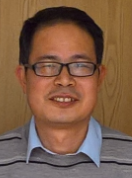
Estimating and modelling the transmissibility of Middle East Respiratory Syndrome CoronaVirus during the 2015 outbreak in the Republic of Korea DR. ZHANG, Xu-sheng PHE PhD 2001 Quantitative Epidemiology (Natural Resource Institue, Univ. of Greenwich, UK) 2001 - 2009: Postdoctoral Research Fellow, Centre of Infectious Diseases and Institute of Evolutionary Biology, University of Edinburgh, UK 2009 - Present Senior Mathematical Modeller and Statistician, Centre for Infectious Disease Surveillance and Control, Public Health England, London, UK - Marine & Ocean
-
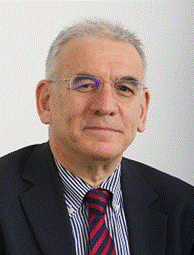
Research and Development Activities in Offshore Renewable Energy in the UK PROF. INCECIK, Atilla University of Strathclyde Atilla Incecik is Professor of Offshore Engineering and Associate Principal and the Executive Dean of the Faculty of Engineering at the University of Strathclyde, Glasgow. Professor Incecik has been responsible for the development of design and analysis tools and model testing of marine and offshore engineering systems during his research activities both in industry and academia. Over forty years Professor Incecik has been involved with teaching, research and knowledge exchange in dynamic load and response prediction tools for ships, offshore platforms and marine renewable energy devices. Professor Incecik is currently visiting Professor at Harbin Institute of Technology, Advisory Professor at Shanghai Jiao Tong University, Chair Professor (Part-time) at Zhejiang University, China. Professor Incecik is Editor-in-Chief of Ocean Engineering Journal. 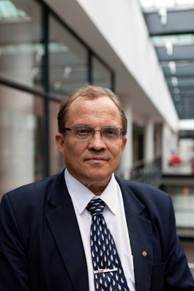
Challenges for Application of Risk Based Design Approaches for Arctic and Antarctic Operations PROF. KUJALA, Pentti Aalto University, Finland Pentti Kujala is a professor of marine technology (safety) at the Aalto University, School of Engineering. He is the head of the Marine Technology research group and since May 2017 he has been also Vice Dean of Research for the School of Engineering. He has about 35 years of research experience related to design of marine structures and ships for open water and for ice. He is chairing a center of Excellence for Arctic shipping and operations (CEARCTIC) funded by Lloyd’s Register Foundation 2013-2018. He has been working before e.g. at Lloyd´s Register of Shipping in London, VTT in Finland and Aker Yards in Finland. He got the degree of doctor of technology in Naval Architecture at Helsinki University of Technology on 1994. The main research interests have been devoted to the risk analysis of marine operations both in open water and in ice and development of innovative structural solutions for various types of ships. cut_2_20180613110351.jpg)
Trends in the Experimental Design Assistance for Arctic Maritime Technology MR. REIMER, Nils HSVA, Germany Nils Reimer is heading the Arctic Technology Department at the Hamburg Ship Model Basin (HSVA). He has worked in ice model testing focusing on the design assistance and experimental research of arctic operation of ships and offshore structures. His work also included ship routing in ice, wave-ice-interaction and impact of changing ice conditions to Arctic shipping. Nils Reimer holds a degree in Naval Architecture with focus on ship dynamics, structural design and offshore engineering. SNAK and GCRC-SOP PROF. CHO, Dae-seung SNAK & GCRC-SOP, Korea D.S. Cho is a professor in the Dept. of Naval Architecture and Ocean Engineering (NAOE) at Pusan National Univ. He received his Ph.D. from the NAOE at Seoul National Univ. in 1991 and thereafter worked in HHI as a ship noise and vibration researcher for 6 years. His research and teaching interests include low noise and vibration design and control of ships and offshore structures, environmental noise, radar cross section, blind source separation. Now, he is the director of GCRC-SOP and the President of the Society of Naval Architects of Korea (SNAK). 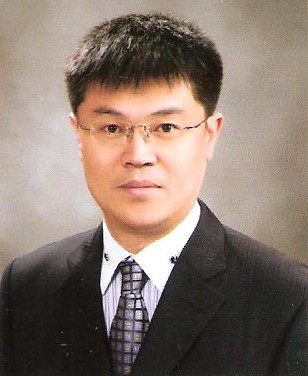
An attainable speed calculation using empirical formula in oblique condition of ice field PROF. KIM, John INHA Technical College, Korea Hyun Soo Kim is Professor and working for Department of Naval Architecture and Ocean Engineering at Inha Technical College. He earned a Bachelor & Master degree in engineering at Inha University and studied for the Doctoral degree at Pusan National University in Korea. He has been worked at R&D center of Samsung Heavy Industries Company Ltd (SHI) as a researcher from 1993 for 15 years. He moved to Inha Technical College after quit SHI in 2008. His major research field is ice mechanic. _20180522151617.jpg)
Modular concept in the design of environmentally friendly passenger vessels: Techno-economic aspects PROF. VLADIMIR, Nikola University of Zagreb, Croatia Nikola Vladimir is assistant professor at the Faculty of Mechanical Engineering and Naval Architecture, University of Zagreb (UNIZAG). He obtained MSc degree in Naval Architecture in 2007 at UNIZAG, and PhD in the field of Hydroelasticity of ship structures in 2011, at the same University. His research background is related to vibration of thin walled-structures, dynamic analysis ship structures (hydroelastic, engine & propeller induced, etc.), vibration phenomena in ship propulsion system (main engine, shafting, propeller…), as well as all other dynamic loading and response issues inherent to ships and offshore units. His current research interests also include ship design procedures, ship energy efficiency, environmental eligibility, etc. He published over 100 papers in journals and specialized conference proceedings. 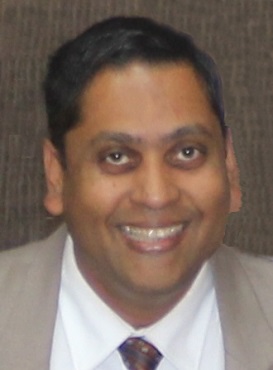
Ro-Ro and Ferry operational stability – A review of historical disasters MR. PEIRIS, Wijendra Lloyds Register, United Kingdom Wijendra Peiris is the LR SERS manager based in the Global Technology Centre in Southampton. He obtained a MSC in Naval Architecture from the University of Newcastle Upon Tyne and has experience of over 20 years in ship inspections, surveys, new construction, design and consultancy. Last 10 years he has been at LR and since 2012 managing SERS and is responsible for its technical leadership and provision of technical expertise and advice to clients. He has led the response teams in over 100 emergencies and exercises. 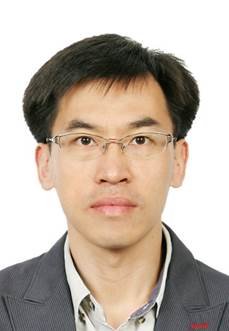
A Numerical Study on Multi-body Wave Energy Converter with Latching Controlled Hydraulic PTO System PROF. KOO, Weon cheol Inha University, Korea Weon-Cheol Koo received the B.S. degree from the Department of Oceanography, Seoul National University, Seoul, Korea, in 1996, the M.Sc. and Ph.D. degrees from the department of ocean engineering at Texas A&M University, Texas, USA in 1999, and 2003, respectively. He is currently a professor and head of department of Naval architecture and Ocean engineering at Inha University. NRC's experience on physical modeling, numerical modeling and full scale measurement in ice covered waters DR. WANG, Jungyong john National Research Council Canada, Canada Dr. Wang is the Research Officer at the National Research Council Canada. Dr. Wang received his Ph.D. from Memorial University (MUN) in 2007. He has been extensively involved in various model testing programs including ships and structures in ice and propeller ice interactions. He has also performed various numerical simulations using the Finite Element Method (FEM, LS-DYNA). In addition to his research activities, he is an adjunct professor at MUN and a member of ITTC since 2012 and 2015. 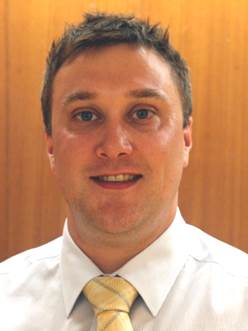
UK-Korea collaboration channels, funding and market opportunities – a view from the British Embassy Seoul MR. DAVIES, Gareth British Embassy Seoul As the Head of Science and Innovation at the British Embassy Seoul, Gareth leads the management, development and enhancement of UK-Republic of Korea science and technology R&D relationships. His responsibilities include the support and promotion of bilateral government and public funding body initiatives and the generation of new cross-border academic and academia-industry research partnerships across the science and engineering spectrum. Jan 2012 to Present: Head of Science and Innovation, British Embassy Seoul; Jun 2009 to Dec 2012: EUREKA and Seventh Framework Programme (FP7) Project Manager, Korea Institute for Advancement of Technology, Seoul; Dec 2008 to Jun 2009: Freelance Technical Editor and Publications Project Manager, Seoul; Mar 2007 to Nov 2008: Project Manager, Random House English Associate Manager, Content Development, Random House Korea, Seoul; Jul 2002 to Feb 2007: Copyright Manager, Cheong Moon Gak Publishing Company, Seoul; Oct 2000 to May 2002: Customer Service Administrator & Rights Assistant, Elsevier Science, Oxford. 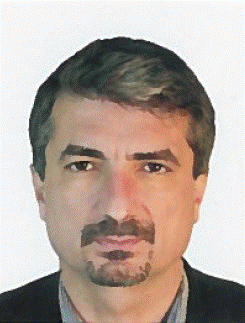
Challenges in the Application of the Direct Calculation Approach in the Design of Marine and Offshore Structures PROF. MALENICA, Sime Bureau Veritas, France Šime Malenica has Naval Architecture degree (1990) from University of Zagreb and PhD degree in Hydrodynamics (1994) from Paris VI University. After his PhD graduation he joined Bureau Veritas where he is still employed. He has been head of the hydro structure section team in the Research Department for a long time and in 2008 he became the Deputy Director of the Research Department. His main fields of research concerns the different aspects of hydro-structure interactions (linear, non-linear, frequency domain, time domain, quasi static and hydroelastic, local and global, ships and offshore…) and he is leading several national and international Research projects on those topics. His research activities include both theoretical and practical aspects of ship and off-shore hydrodynamics and he published more than 130 papers both in scientific journals and at the specialized conferences. He is also Associate Professor at the Faculty of Mechanical Engineering and Naval Architecture in Zagreb (Croatia). From 2016 he is the corresponding member of the Croatian Academy of Sciences and Arts. _20180611172413.jpg)
Global R&D Collaborative Programmes in Korea MR. PARK, Cheon kyo KIAT Jan. 2017 to Present: Director, KIAT Europe office; Jan. 2011 to Dec. 2016: Principal Researcher, KIAT (Korea Institute for Advancement); Mar. 2008 to Dec. 2010: Specialist, MKE (Ministry of Knowledge Economy); Jul. 2003 to Feb. 2008: Senior Researcher, IITA (Institute for Information Technology Advancement); Jul. 2000 to Jun. 2003: Researcher, ETRI (Electronic Telecommunication Research Institute); Aug. 1999 to Jun. 2000: Instructor, Daeduk University. _20180814161710.png)
A perspective on the implications of the Opening of Arctic Sea Routes MR. TUSTIN, Robert Lloyd's Register, United Kingdom Rob Tustin has worked for 34 years as a surveyor for Lloyd’s Register including 20 years deployed in South Korea as a field surveyor, plan approval manager and for final 11 years until 2015 as Technical Manager, New Construction for Lloyd’s Register in North East Asia. Rob Tustin is now based in the UK as a Technical Consultant for ship new construction. He has extensive recent experience of Classification and Regulatory aspects at the pre-tender and pre-contract specification development stages for Polar ship new construction projects. - Material Science & Technology
-

Power devices & high-voltage ICs, sensors in Europe DR. PARK, Jong mun ams AG Dr. Jong Mun Park is a “President of Korean Scientist Association of Austria” and “Chair of KIAT K-TAG Europe”, and served as a “2015/2016/2017 EU Eurostars2 IEP (Independent Evaluation Panel) member”. He is a Principal Engineer in the R&D Department of ams AG since 2003. Jong Mun received his Ph.D. from Vienna University of Technology in 2004. From 1988-2001 he worked at the Power Semiconductor Group, KERI, where he had been involved in many national projects for developing high-voltage (HV) and power semiconductor devices. Dr. Park holds over 25 national/international patents and co-authored over 120 publications in technical journals and a book. In 2009-2011 he was in the IRPS Technical Committee and co-chair in the HV/RF session. Dr. Park was a member of ESSDERC2015 technical committee. He was also involved as work-package/task leader in several European projects like MODERN and SUPERTHEME. From 2006-2009 he was a leader of TCAD/Device engineering team within ams/IBM joint project for developing high-voltage IC technology, where he developed the industry best HV p-channel LDMOS transistors. His interests include device engineering/optimization/ TCAD works for HV CMOS, optics and CMOS integration, hot-carrier reliability, HV CMOS integration, industry & medical sensors, optics & photodiode integration, 3D sensor integration. 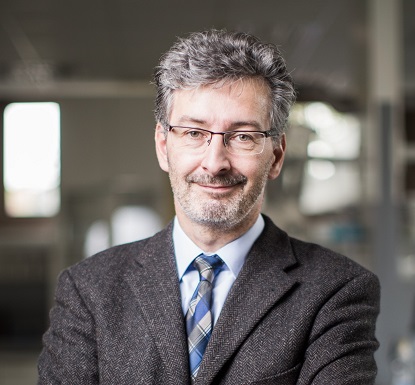
Photochemical Enzyme Models for Solar Energy Utilization, Artificial Photosynthesis and bottom-up Synthetic Biology PROF. KNöR, Günther Johannes Kepler University Linz (JKU) Günther Knör is full professor of Inorganic Chemistry and director of the Photochemistry Center at Johannes Kepler University Linz (JKU) in Austria. His research topics are covering various transdisciplinary aspects of coordination chemistry, excited state reactivity and catalysis including the development of smart bio-inspired processes and functional materials for artificial photosynthesis, green synthetic chemistry and enzyme-like substrate conversion applied in the fields of solar energy utilization and life sciences. 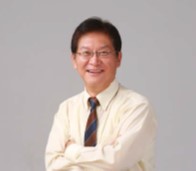
Pb-free Solder Interconnects for Electronic Packaging and Their Nano-scale Application to Printed Electronics and Transparent Electrode: Viewpoint of Computational Materials Science PROF. LEE, Hyuck mo Korea Advanced Institute of Science and Technology (KAIST) Full Professor, KAIST / Director of the BK Program, KAIST MSE Program / Head, Department of Materials Science and Engineering, KAIST / Fellow, Korean Academy of Science and Technology 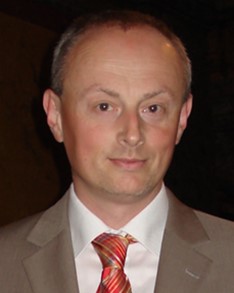
Non-fullerene acceptor – a new material class for highly efficient organic solar cells? PROF. SCHARBER, Markus c Johannes Kepler University Linz Markus Scharber is currently Associate Professor at the Johannes Kepler University Linz, Austria. He studied physics at the Johannes Kepler University Linz and at the Napier University, Edinburgh, Scotland. In 2002 he received a PhD from the Linz Institute for Organic Solar Cells. From 2002 until early 2012 he was working at Konarka Technologies Inc. heading among other responsibilities the Material and Device Development Group. His research interests lie in the area of fundamental processes in novel semiconductor materials focusing on applications for energy harvesting and detection. 
Trends in Biodegradable Polymers, a VC Perspective DR. CAMERON, Neil Emerald Ventures 
Biodegradability : Not a simple linear feature for polymers MR. DECONINCK, Sam OWS nv - Mechatronics & Aerospace
-
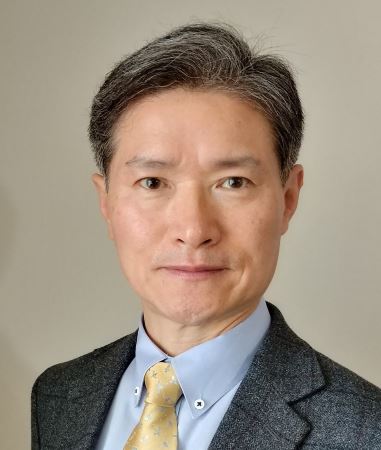
Prospects on Space Development in Korea DR. CHOI, Joon-min Korea Aerospace Research Institute Dr. CHOI, Joon-Min graduated Seoul National University in Aeronautical Engineering. Master degree in the same area at University of Washington and PhD in Mechanical Engineering at Texas A&M, he served as one of the key space technology researchers at KARI (Korea Aerospace Research Institute) since 2003. After positions as head of satellite basic technology group and thermal/propulsion group, he directed satellite test division, before becoming project strategy division director. Since 2011, Dr. Choi is Executive Director of KARI, responsible for System R&D, SBAS programme and recently he works as Executive Director of Technology R&D Head Office. Dr. Choi received Korean President Award for his excellent work in 2007. Small Satellites in support of next generation applications start-ups MR. CLARK, Craig Clyde Space Ltd. / AAC Microtec Craig has a BEng in Electrical Power Engineering from the University of Glasgow and an MSc in Satellite Engineering from the University of Surrey. After 11 years at a major space company in SE England, Craig returned to Glasgow and founded Clyde Space Ltd. Clyde Space launched Scotland's first satellite in 2014 and has established itself as one of the most successful suppliers of small satellites in the world. In January 2018, Clyde Space merged with Swedish listed company AAC Microtec, and the combined company continues to grow and develop cutting-edge products for the small satellite market, in particular in the area of tiny satellites called 'CubeSats'. Presently, the company has over 130 highly skilled staff. In June 2013, Craig was awarded an MBE in the Queen's birthday Honours list for his services to Innovation and Technology and in 2017, the company won the Queen’s Award for Enterprise in the Innovation Category. 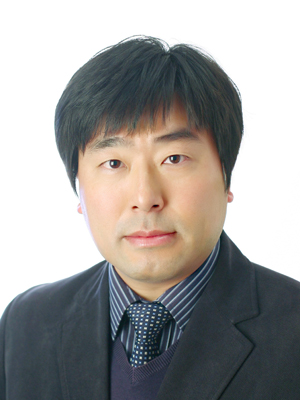
Combustion characteristics of a 2.4-Liter hydrogen engine DR. CHOI, Young Korea Institute of Machinery and Materials Education
2000 ~ 2005 : Ph.D. in Mechanical Engineering, University of California - Berkeley, USA (majored in Combustion, minored in Fluid Dynamics and Chemical Kinetics)
1997 ~ 1999 : Master of Engineering in Mechanical Engineering at the Graduaten School of Kyung Hee University, Seoul, Korea
1990 ~ 1997 : Bachelor of Engineering in Mechanical Engineering at Kyug Hee University, Yongin, Korea
1987 ~ 1990 : Graduated from Kyung Shin High School, Seoul, Korea
Research Experiences
2013 ~ Present : Principal Researcher, Korea Institute of Machinery and Materials (KIMM), Department of Power and Engine Research, Korea
- Stoichiometric HCNG engine development (Post EURO-6 emission level)
- CNG injection device development (Mainly injection valve)
- Preliminary research on liquid hydrogen internal combustion engine for UAV
2005 ~ 2012 : Senior Researcher, Korea Institute of Machinery and Materials (KIMM), Department of Engine Research, Korea
- Lean-burn HCNG engine development (EURO-6 emission level)
- Hydrogen/syngas assisted internal combustion engine
- Biogas, SNG fuel application to an internal combustion engine for power generation
- LPG injection device development
- HCCI engine combustion
2001 ~ 2003 : Graduate Student Researcher (GSR), UC Berkeley, Mechanical Engineering Department, USA
- Application of an Artificial Neural Networks (ANN) to ignition problem
- Well-Mixed-Reactor (WMR) simulation for HCCI engine (with Chemkin)
- HCCI engine simulation with KIVA-3V
1997 ~ 1999 : Research Assistant, Kyung Hee University, Mechanical Engineering Department, Korea
- Measurement of air temperature by ultrasonic wave
- Study on the liquid atomization characteristics of the rotary disk atomizer
- Development of ceramic heater for early fuel evaporation in diesel engine
- Measurement and analysis of exhaust gas in catalytic combustor
- Flow pattern analysis of swirl spray combustion field
Other Experiences
Jan. 2018 ~ Present : Regional Director, Korean Society of Automotive Engineers (KSAE)
2006 ~ Present : Professor, University of Science and Technology (UST), Environment Energy Mechanical Engineering Department, Daejeon, Korea
2015 ~ present : Editorial Board Member, Transactions of the KSAE
Jan. ~ Dec. 2015 : Editorial Director, Korean Society of Automotive Engineers (KSAE)
2012 ~ 2013 : Editorial Board Member, Auto Journal of the KSAE
2011 ~ 2012 : Technology Committee Member, Clean Diesel Vehicle Area of the Korea Institute for the Advancement of Technology (KIAT)
2009 ~ 2012 : Planning Committee Member, Powertrain Area of the Korea Evaluation Institute of Industrial Technology (KEIT)
Mar. ~ Oct. 2010 : Working Group Member, Green Car Strategic Forum Korea
2008 ~ 2009 : Evaluation Committee Member, Global Network Korea
2006 ~ 2009 : Advisory Committee Member, Automobile Area of the Korea Institute of Science & Technology Evaluation and Planning (KISTEP)
2003 ~ 2004 : Graduate Student Instructor (GSI) for ME107B (Mechanical Engineering Lab.) at the University of California - Berkeley, USA
Aug. 19~22. 1997 : Volunteer staff in the 7th International Conference on Liquid Atomization and Spray Systems
1997∼ 1998 : Teaching Assistant (in the Experiment in Mechanical Engineering at Kyung Hee University, Korea)
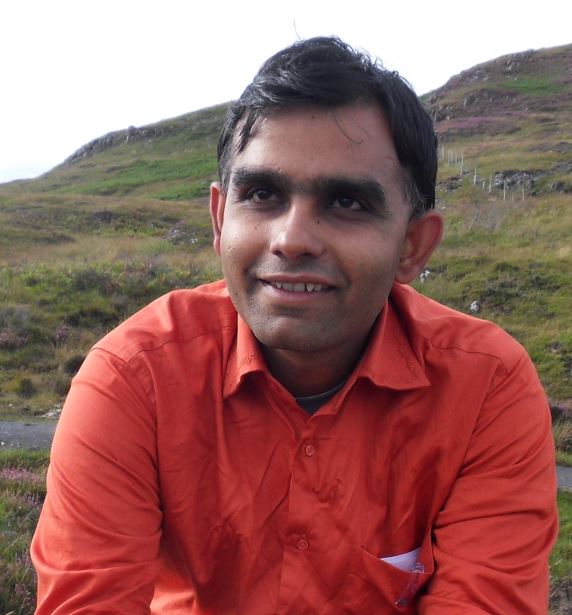
Sensing for next generation robotics and industry 4.0 PROF. CHOUBEY, Bhaskar University of Oxford / Siegen University Bhaskar Choubey holds the chair of circuits and sensors in Siegen and was an Associate Professor of Engineering Science in Oxford till recently. He obtained his doctorate from Oxford as a Rhodes scholar. For his sensors research, he was awarded the 2011 Early Career Achievement Gold award by the IEEE Sensors Council. He has served as an associate editor of the IEEE Transactions on Circuits and Systems – II and is currently on the editorial board of IEEE Sensors Journal. - Nuclear Energy
-
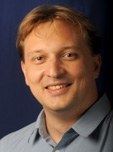
Historical Context, Recent Developments and Prospects of Nuclear R&D and Education in the UK DR. SHWAGERAUS, Eugene University of Cambridge Dr Eugene Shwageraus is a Senior Lecturer at Cambridge University Engineering Department and he is currently the Course Director for the MPhil in Nuclear Energy. Prior to joining the University of Cambridge, he was the Head of Nuclear Engineering Department, Ben-Gurion University of the Negev in Israel. Dr Shwageraus’s research is focussed on physics and engineering of nuclear power reactors as well as modelling of nuclear systems to assist policy decision making. The general policy and future plan of Nuclear Power in Czech Republic MR. MICHALEC, Vojtech ČEZ, a.s. Vojtech Michalec is an Expert in Nuclear Power Division of company CEZ, Department responsible for the preparation of Temelin II and Dukovany II NPP Project. In January 2017 he was appointed by the Czech Government as a Chairman of Technical and Investment Working Group of the Standing Committee for Nuclear Energy. He has in excess of 38 years’ experience in senior management position of project, technical and business leadership in a range of Nuclear and Conventional Power Projects in Czech Republic and overseas. 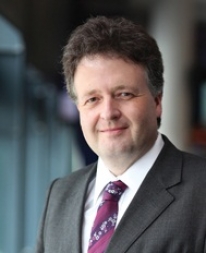
British Nuclear Renaissance - the difficult years PROF. NUTTALL, William The Open University William James Nuttall is Professor of Energy having joined the Open University in October 2012. Much of his work has focussed on technology and policy issues of energy. He has had a leading role in studies devoted to particular energy-related materials including plutonium, helium, uranium, thorium and hydrogen and much of that work is on-going. He has extensive experience of matters relating to civil nuclear energy. - Special Sessions
-
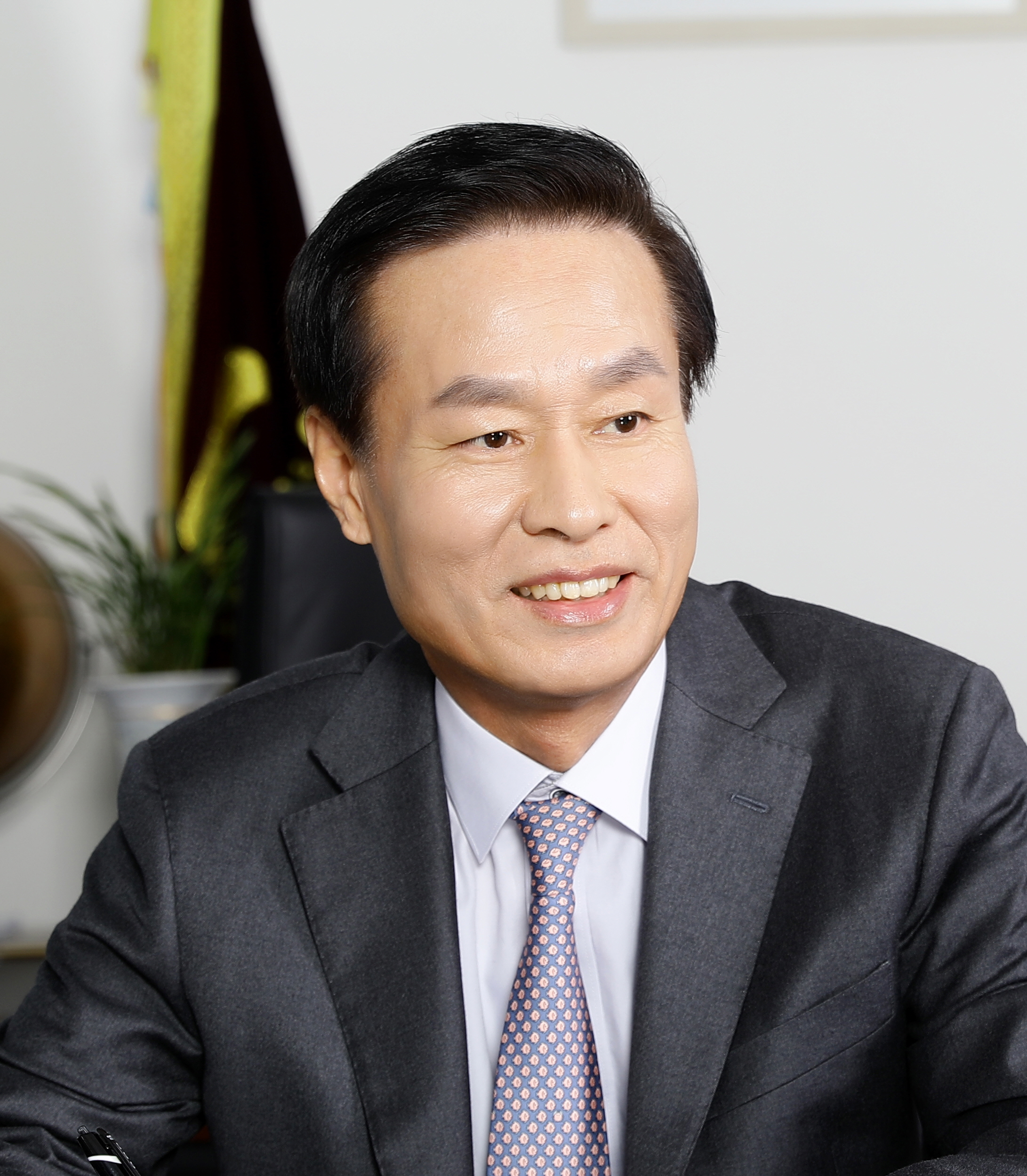
Challenges and responses for government research institutes of Korea DR. KWAK, Byong-sung Korea Institute of Energy Research (KIER) Dr. Byong-Sung Kwak has been the president of Korea Institute of Energy Research (KIER) since December 2016, planning and executing Korea’s national energy R&D programs in the areas that include improving efficiency and securing environmentally-friendly ways in use of conventional energy resources and exploring new and renewable energy resources together with developing technologies for small and medium sized businesses. He has lead national energy R&D programs in new and renewable energy, energy related materials and efficiency improvement and developing means against climate change. Before joining KIER, he lead enhancing the competitiveness of core businesses and developing new growth engines as the Chief Technology Officer of SK Innovation and the Chairman of the R&D Subcommittee for Energy and Chemicals of SK Group, covering the areas of energy, petrochemicals, information and electronics materials, life science and fine chemicals. He run the life science business of SK Holdings resulting in establishment of two related companies. He also established a catalysis lab, one of the SK Innovation’s world-leading technology centers, playing a pivotal role of seeding continuous organic synthesis, which enabled SK to be positioned as one of the top tier companies. 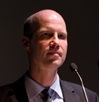
Horizon 2020 Funding Opportunities MR. ARENTOFT, Michael European Commission, Directorate-General for Research & Innovation Michael Arentoft is a policy officer in the European Commission’s Directorate-General for Research and Innovation dealing with International Cooperation Strategy. He was previously Innovation Union policy officer. Before that he was Deputy Head of Strategy for ICT Research and Innovation in DG Information Society and Media and Sector Head of ICT R&D Work Programme and Planning. He has also been responsible for the coordination of ICT Essential Technologies and Infrastructures. He joined the European Commission as a Project Officer in High Performance Computing and Networking. Michael Arentoft has an industrial background with the Space Division of Computer Resources International in Denmark and with Rovsing International in France. His educational background is from the Computer and Information Science PhD program of the University of Pennsylvania, Ivy League Engineering School, USA, and from the Electrical Engineering Master’s program of the Technical University of Denmark. 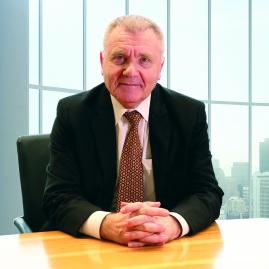
Encouraging Remarks to the Korean ERC & MSCA PIs & Participants PROF. BOURGUIGNON, Jean-pierre President of the European Research Council Professor Jean-Pierre Bourguignon is the President of the European Research Council since January 2014. Prior to that, he was the Director of the Institut des Hautes Études Scientifiques (IHÉS) from 1994 till 2013. This international research institute located near Paris, France, was built as the European counterpart of the Institute for Advanced Study in Princeton. He was also the first ERC Panel Chair in Mathematics, for Starting Grants. A mathematician by training, he spent his whole career as a fellow of the Centre National de la Recherche Scientifique (CNRS). He held a Professor position at École polytechnique from 1986 to 2012. From 1990 to 1992, he was President of the Société Mathématique de France and President of the European Mathematical Society from 1995 to 1998. He is a former member of the Board of the EuroScience organisation (2002-2006) and served on EuroScience Open Forum (ESOF) committees since 2004. Professor Bourguignon received the Prix Paul Langevin in 1987 and the Prix du Rayonnement Français in Mathematical Sciences and Physics from the Académie des Sciences de Paris in 1997. He is a foreign member of the Royal Spanish Academy of Sciences. In 2005, he was elected honorary member of the London Mathematical Society and has been the secretary of the mathematics section of the Academia Europaea. In 2008, he was made Doctor Honoris Causa of Keio University, Japan, and, in 2011, Doctor Honoris Causa of Nankai University, China. In 2017, he was elected honorary member of the German Association of Mathematicians (DMV). 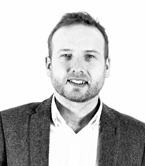
EUREKA Program Introduction DR. CHISNALL, Peter EUREKA Peter is responsible for managing the Eurostars funding programmes under FP7 and Horizon 2020. He is an expert in the design and running of international funding programmes. Prior to EUREKA, he gained experience at the European Commission and European Research Council. Industrial experience includes time at Wyeth Pharmaceuticals (now part of Pfizer) and with Reaxa, an R&D intensive SME within the speciality chemical sector. Peter was educated at Aston University (UK) and holds a BSc in Applied Chemistry and a PhD in Organic Chemistry. About EUREKA: EUREKA is a publicly-funded, intergovernmental network, involving over 40 countries aiming to enhance European competitiveness by fostering innovation-driven entrepreneurship, between small and large industry, research institutes and universities. EUREKA is a leading facilitator of innovation, and international R&D&I cooperation. It supports market-oriented international R&D&I projects and facilitates access to finance for companies involved in its projects. 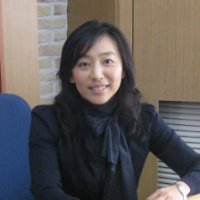
MSCA Grant Opportunities DR. KIM, Hyong-ha KRISS (Principal Research Scientist) & ERC NCP, Korea Hyong-Ha Kim is a Principal Research Scientist at the Korea Research Institute of Standards & Science (KRISS) and currently the Korean National Contact Point of the European Research Council. She graduated with Honors from Seoul National University receiving her B.S & later M.S., and earned her Ph.D. from the University of Texas at Austin majoring in Plant Molecular Biology. During her Ph.D. program, she received various awards and scholarships including the ‘Harold C. Bold Award for Teaching Excellence’, and the ‘Ralph Alston Memorial Scholarship for Excellence in Research’. At KRISS, although her research focus was in Bioanalysis and Biological Measurement Standards in fields including GMOs and biopharmaceuticals, she gained international cooperation experience while serving as the Director of the Office of Global Partnership. Her cooperation experiences were expanded as she was later invited to serve as the Director of the International Cooperation Division at the National Research Council of Science and Technology (NST), and she has gained EU cooperation experience as an External Expert since 2009, and also as the Korean NCP of the ERC since 2013. With interest in S&T Policies and Government-funded S&T Research Institutes, she has served in various National and Governmental committees including the International Cooperation Committee and Basic Research Committee for MSIT, National R&D Indirect Cost Analysis Committee, Evaluation Committee of the National S&T Commission, and the R&D Self-Assessment Committee for the MSIT. 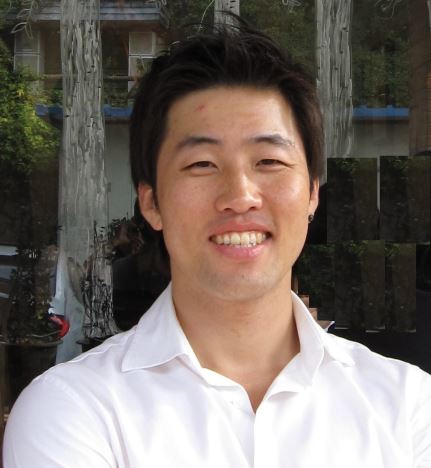
Dynamic Control of Optical Properties with Gated-graphene Metamaterials (Former MSCA IF Fellow) DR. KIM, Teun-teun Institute for Basic Science (IBS), Sungkyunkwan University (SKKU), Center for Integrated Nanostructure Physics (CINAP) Dr. Teun-Teun Kim is currently a Young Scientist Fellow at the Center for Integrated Nanostructure Physics, Institute for Basic Science (IBS), Sungkyunkwan University. After he received his Ph.D. degree in Physics from Korea Advanced Institute of Science and Technology (KAIST) in 2010, he continued his post-doctoral work at KAIST. From 2013 to 2017, he worked at the University of Birmingham as a Marie Curie Research Fellow. His current research interests are focused on graphene and 2D materials based Metamaterials & Metasurfaces, PT-symmetric (or breaking) Metamaterials, and Topological Metamaterials. 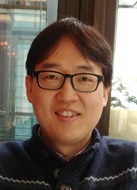
Defining the identity and dynamics of adult gastric isthmus stem cells (ERC StG-2014-LS04 Grantee) DR. KOO, Bon-kyoung Institute of Molecular Biotechnology of Austrian Academy of Sciences (IMBA) Dr. Bon-Kyoung Koo is an experienced mouse geneticist actively employing the emerging organoid culture technology to study stem cell maintenance and activation in the mouse and human intestine and colon. Following his PhD at POSTECH, Korea, Dr. Koo joined Prof. Hans Clevers’ group at the Hubrecht Institute, Netherlands in 2009. Here he witnessed the first establishment of the Lgr5+ cell-derived intestinal organoid culture system. In the following years, Dr. Koo has utilised this novel culture system to perform sophisticated gene correction with CRISPR/Cas9, to unravel the molecular regulation of adult stem cells and prove the stem cell properties of a Troy+, quiescent reserve stem cell population in the stomach. After his first group leader position at the Cambridge Stem Cell Institute, he moved his group to IMBA in 2017. Currently, his group focuses on clonal dynamics of adult epithelial stem cells both in homeostasis and during injury mediated repair. He received his ERC Starting Grant in 2014 (LS4, Physiology, Pathophysiology and Endocrinology). Soft and Slippery Interfaces: Lubricating Properties of Mucins and Mucus Gels (ERC StG-2010-LS09 Grantee) DR. LEE, Seunghwan Technical University of Denmark (DTU), Department of Mechanical Engineering Dr. Seunghwan Lee completed his education for BSc and MSc in Seoul National University, and acquired his Ph.D. in Chemistry, University of Houston from research on surface chemistry and nanotribology with scanning probe microscopy in 2000. He then moved to the Swiss Federal Institute of Technology, Zurich (ETHZ, Switzerland) to work in the field of biomaterials and biomimetic lubrication as a post-doc and senior scientist until 2008. Since 2009, he took the position as an associate professor in the Department of Mechanical Engineering, Technical University of Denmark (DTU), and has been leading a research group on tribology of biopolymers, implants, and biosurface engineering. He received his ERC Starting Grant in 2010 (LS9, Applied Life Sciences and Biotechnology) and completed the project in 2015. 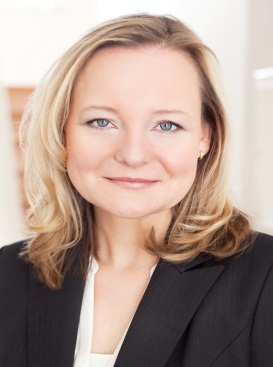
ERC Grant Opportunities MS. SIMROSS, Sabine The European Research Council Executive Agency Sabine Simmross is the Assistant to the President of the European Research Council. She coordinates the relations with both internal and external stakeholders, such as the European Commission, the European Parliament, and the EU Member States, as well as the broader Scientific Community. Prior to her post at the ERC, she has worked in the field of foreign policy and assistance for the EU, the World Bank and private sector. Sabine gained her Master of Science degree in European Politics and Policy from the London School of Economics and Political Science. She also studied the European and International Law at the Institut d’Etudes politiques (Sciences Po) in Strasbourg, France, and completed a course on Science, Technology and Innovation policy at the Harvard Kennedy School at Harvard University, USA. Other than her German mother tongue, she speaks English, French and some Spanish. 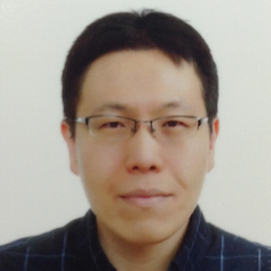
General Relativistic Effects as a Novel Probe of Inflationary Cosmology (ERC CoG-2015-PE09 Grantee) DR. YOO, Jaiyul University of Zurich, Center for Theoretical Astrophysics and Cosmology Dr. Jaiyul Yoo grew up in Seoul, and received an undergraduate degree from Seoul National University in 1998. After serving in the Korean Army for two and a half years, he went to the U.S. and got his PhD in Theoretical Astrophysics from the Ohio State University in 2007. During his seven-year postdoctoral period, he held a Menzel Fellowship at Harvard University and a joint appointment at U.C. Berkeley and the University of Zurich with a Berkeley-Zurich Cosmology Fellowship at the Lawrence Berkeley National Laboratory, an Ambizione Fellowship from the Swiss National Science Foundation, and a Tomalla Fellowship from the Tomalla Foundation for Gravity Research. He became an Assistant Professor at the University of Zurich in 2014 and was promoted to an Associate Professor in 2018. He received his ERC Consolidator grant in 2015 (PE9, Universe Sciences).